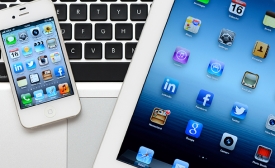digital diplomacy
The feminist discourse lacks homogeneity. However, the greatest pitfall of our day has been the tendency and practice to regard the needs and challenges faced by women globally through a single feminist lens: Western feminism.

Read the summary of the International Advocacy in the Digital Age workshop with recommendations from Canada, Israel, Mexico and the United States.

CPD's 2014 annual review explores the growth of public diplomacy over the past year
With the support of the European Union, the Diplomatic School of Armenia has organized an international conference on Digital Diplomacy. More than 60 participants, Directors of Diplomatic Institutes, Ambassadors and Heads of Department of Ministries of Foreign Affairs from all over the world will discuss the prospects and challenges of digital diplomacy during the two-day event.
Two years ago, the Obama administration announced a new strategy to curb online espionage.(...)The White House said it would increase public awareness of the threat, encourage the private sector to increase its defenses, focus diplomacy on protecting trade secrets overseas, improve trade secret theft legislation and make investigations and prosecutions of corporate and state-sponsored trade secret theft a top priority.
“Welcome to ISIS Land” was in some ways a breakthrough for the U.S. government after years of futility in attempting to compete with the propaganda of al-Qaeda and its off-shoots. The video became a viral phenomenon — viewed more than 844,000 times on YouTube — and a cause of significant irritation to its target. But the minute-long recording also became a flash point in a much broader debate over how far the United States should go in engaging with a barbaric adversary online.
When India’s premier wanted to signal a thaw in relations with rival Pakistan recently, he didn’t call a press conference or make a televised speech. He tweeted. (...) Since Mr. Modi took office last year as leader of the world’s largest democracy, policy pronouncements have come in 140-character snippets. He has used Twitter and other social-media services to engage in diplomacy and build his image in a way few other global leaders have.
Ahead of his visit to China—from May 14 to 16—India’s social-media friendly Prime Minister Narendra Modi joined the Chinese social media platform Weibo to connect with Chinese citizens. (Hello China! Looking forward to interacting with Chinese friends through Weibo)”, Prime Minister said through his social media account.







